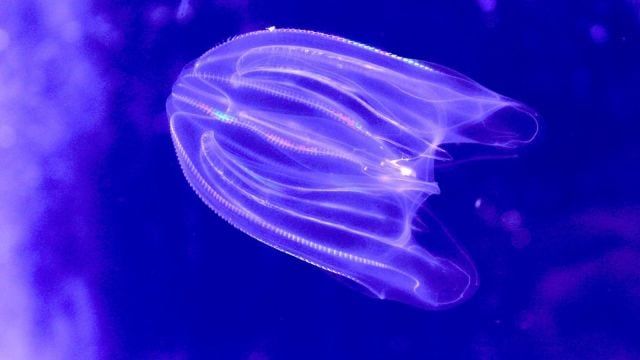Scientists Stunned by Discovery of 'Time-Traveling' Marine Invertebrate that Defies Traditional Lifecycle

In a groundbreaking breakthrough, researchers have identified a new species of marine invertebrate that has broken the cycle of birth, ageing, and death, pushing the boundaries of our understanding of animal development and life cycles.
Comb jellies, specifically Mnemiopsis leidyi, have been found to exhibit an extraordinary phenomenon where they can revert to younger versions of themselves, defying the traditional lifecycle of most animals. This remarkable ability was observed by postdoctoral fellow Joan J Soto-Angel, who discovered that adult comb jellies can regress and reach a larval stage under extreme stress.
Soto-Angel's curiosity sparked an experiment, which aimed to reproduce the conditions that triggered the de-ageing process in comb jelly. The results showed that when exposed to stress, adult comb jellies can undergo a transformation, resulting in a completely different feeding behaviour typical of a cydippid larva.
"This finding challenges our understanding of early animal development and body plans, opening new avenues for the study of life cycle plasticity and rejuvenation," Soto-Angel stated. "The fact that we've found a species using this unique mechanism raises fascinating questions about its prevalence across the animal tree of life."
Comb jellies are estimated to have originated 700 million years ago, making them one of the oldest living species on Earth. However, they are not alone in their alleged 'time-traveling' abilities. Turritopsis dohrnii, known as the immortal jellyfish, has also been observed to undergo reverse biological development.
This breakthrough discovery is expected to shed light on the ageing process in humans and the developmental biology of other animals. The researchers hope to uncover the molecular mechanism driving reverse development and what happens to the animal's nerve net during this process.
By: [Your Name], Alayaran News
Source: Proceedings of the National Academy of Sciences
Date Published: Mon, 11 Nov 2024 09:07:16 GMT
